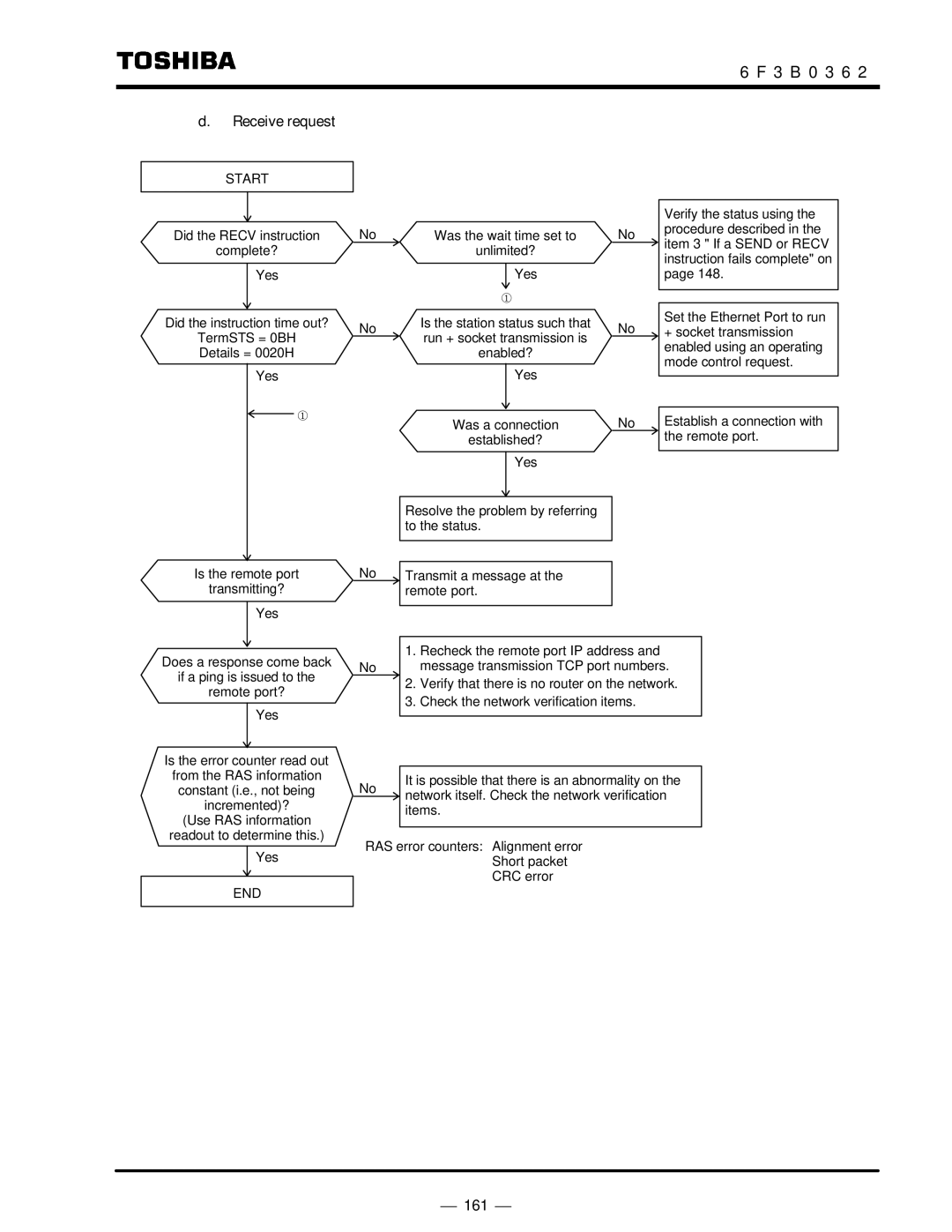
6 F 3 B 0 3 6 2
d.Receive request
START
Did the RECV instruction
complete?
Yes
Did the instruction time out?
TermSTS = 0BH
Details = 0020H
Yes
¬
No | Was the wait time set to | No | |
| unlimited? |
| |
| Yes |
| |
| ¬ |
| |
No | Is the station status such that | No | |
run + socket transmission is | |||
|
| ||
| enabled? |
| |
| Yes |
| |
| Was a connection | No | |
| established? |
| |
| Yes |
|
Verify the status using the procedure described in the ![]() item 3 " If a SEND or RECV instruction fails complete" on page 148.
item 3 " If a SEND or RECV instruction fails complete" on page 148.
Set the Ethernet Port to run
+socket transmission enabled using an operating mode control request.
Establish a connection with ![]() the remote port.
the remote port.
Is the remote port
transmitting?
Yes
Does a response come back
if a ping is issued to the
remote port?
Yes
Is the error counter read out from the RAS information constant (i.e., not being incremented)?
(Use RAS information
readout to determine this.)
Yes
END
Resolve the problem by referring to the status.
No | Transmit a message at the |
| |
| remote port. |
| |
|
|
|
|
|
|
| |
| 1. | Recheck the remote port IP address and | |
No |
| message transmission TCP port numbers. | |
| 2. | Verify that there is no router on the network. | |
| 3. | Check the network verification items. | |
|
|
|
|
No | It is possible that there is an abnormality on the | |
network itself. Check the network verification | ||
| ||
| items. | |
|
|
RAS error counters: Alignment error
Short packet
CRC error
